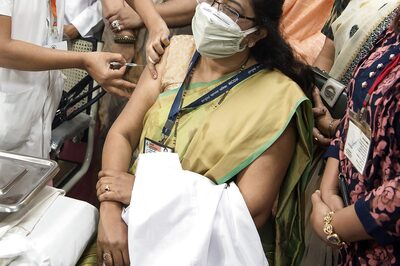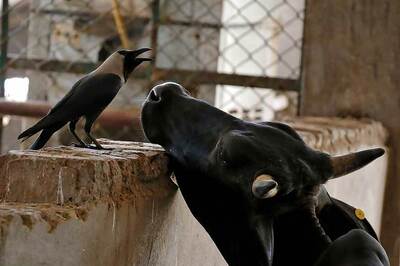
views
TOKYO: Bank of Japan Governor Haruhiko Kuroda said the central bank will continue to work closely with the government to ease corporate funding strains, as the coronavirus crisis keeps the economic outlook highly uncertain.
The BOJ will also pay heed to requests from businesses to keep assisting corporate funding, Kuroda said, signalling his readiness to extend the March 2021 deadline for programmes aimed at pumping money to companies hit by COVID-19.
“It’s true corporate funding remains tight. We’ll of course monitor developments carefully and take additional easing steps without hesitation if necessary,” Kuroda told an online meeting with business leaders in Osaka, western Japan, on Wednesday.
“We’d like to continue supporting corporate funding, working closely with the government,” he said.
Kuroda made the remarks after meeting Prime Minister Yoshihide Suga earlier in the day. It was their first meeting since Suga was elected as Japan’s new leader this month.
With the immediate hit from the pandemic easing, the BOJ kept monetary policy steady last week and upgraded its view on the economy to say it was starting to pick up.
While Kuroda repeated the economy was likely to improve moderately, he warned of various risks to the outlook such as the fallout from the pandemic, U.S.-China tensions and protectionism.
“Uncertainty on Japan’s economic and price outlook is extremely high and risks are skewed to the downside,” he said.
“The shock exerted by the pandemic could push down corporate and household growth expectations, making them cautious about spending. That’s something we need to look out for.”
Kuroda also said Japan’s consumer prices will likely keep falling for the time being.
But he added the expected drop is mostly due to temporary discounts offered by the government to promote domestic tourism, rather than a change in corporate price-setting behaviour that could return Japan to a prolonged deflationary phase.
“Our baseline scenario is for consumer inflation to turn positive and accelerate its pace of increase as the economy improves,” Kuroda said.
Japan suffered its biggest economic slump on record in the second quarter as COVID-19 hit demand, reinforcing expectations inflation will remain well below the BOJ’s 2% target for years.
The BOJ eased policy twice this year mainly by ramping up asset buying and creating a new lending facility to ease funding strains for companies.
Disclaimer: This post has been auto-published from an agency feed without any modifications to the text and has not been reviewed by an editor




















Comments
0 comment